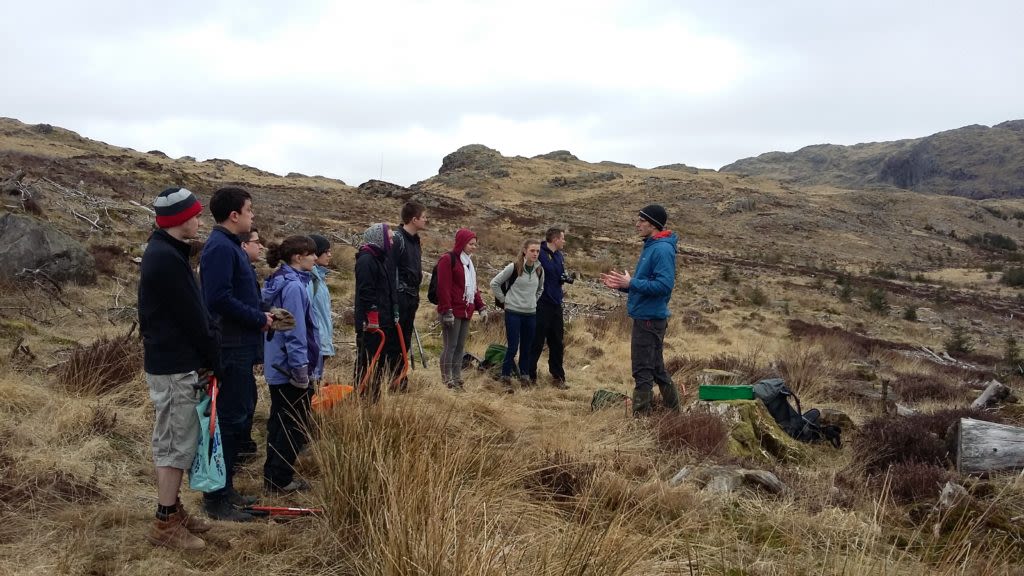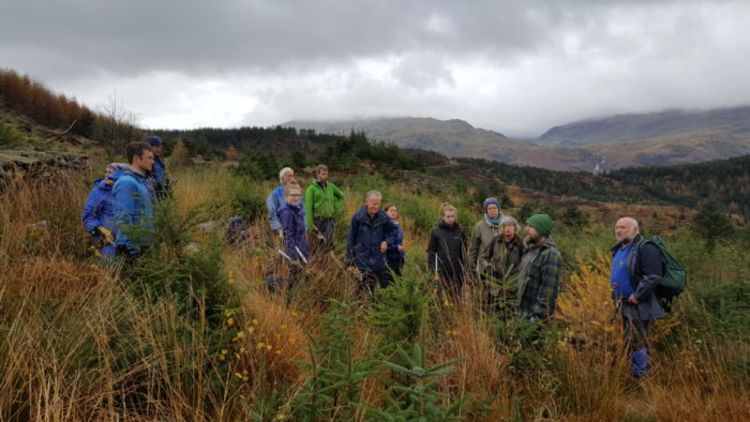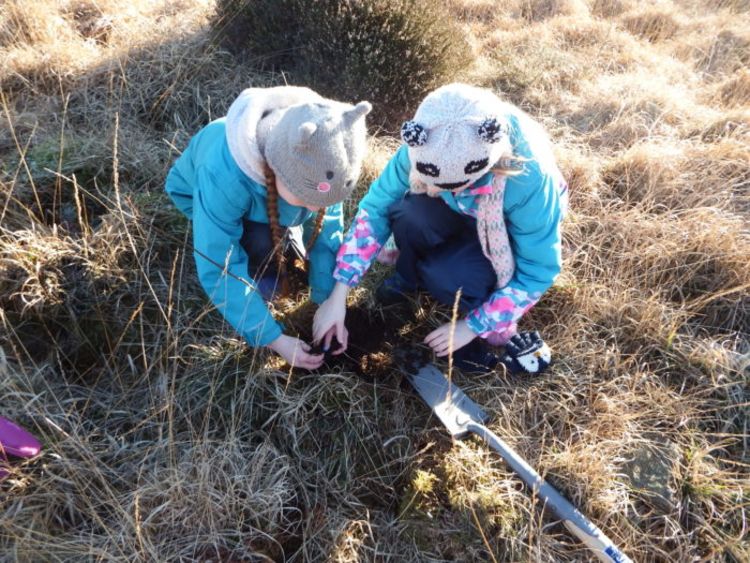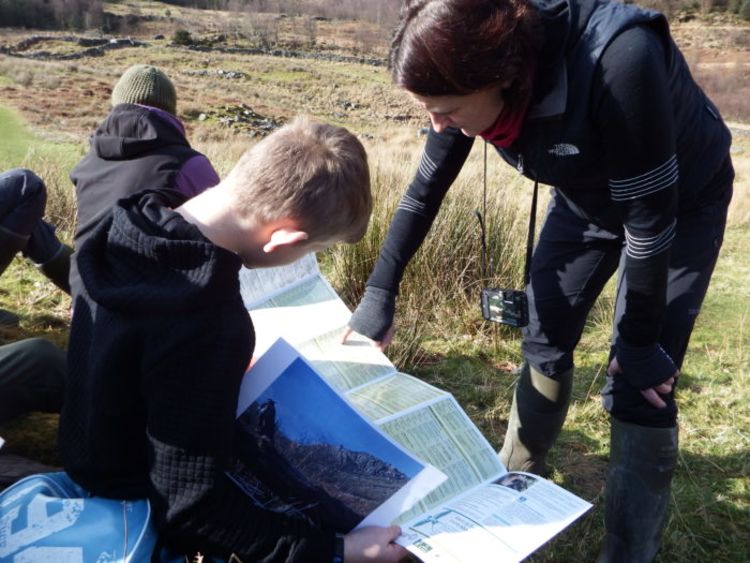The Alliance for Northern Nature
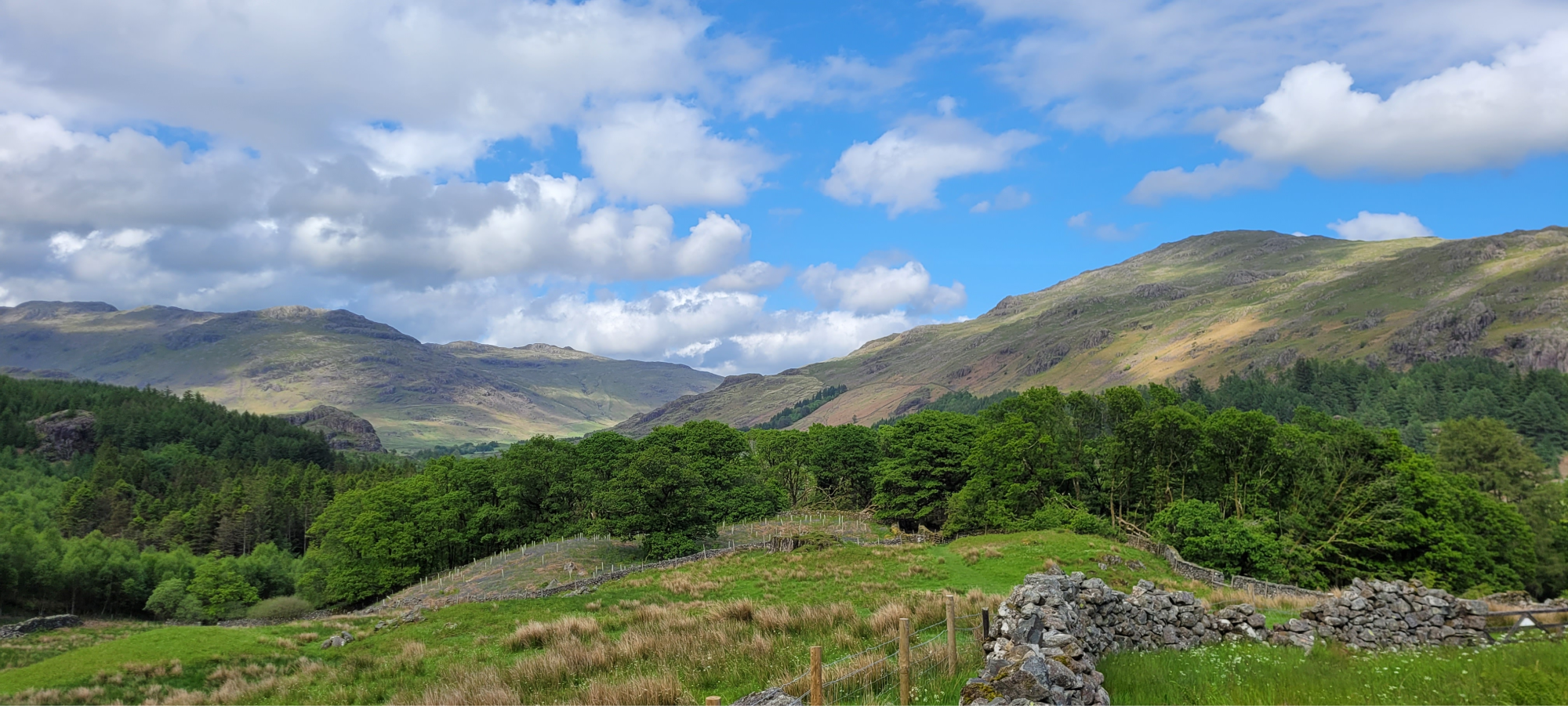
A new fundraising project will help restore plant and animal life to a wide variety of landscapes across the UK – benefitting nature, communities and the planet.
The UK is one of the most nature-depleted nations in the world. Since 1970, species across the UK have declined by an average of 19% and nearly one in six species are now threatened with extinction.
The Alliance for Northern Nature, led by the University of Leeds, will bring together communities and organisations across the UK to restore biodiversity – with an initial focus on the North of England.
Projects will help nature recover, provide education and employment, host research on the benefits of nature restoration, and increase resilience to the impacts of climate change for generations to come.
Donor support is needed to scale up and drive these nature recovery projects across the UK.
Why now?
“Most of our countryside is managed for agriculture and food production,” says Dr Cat Scott of the School of Earth and Environment. “We haven’t managed it nearly so well for the climate or nature. Many habitats have been lost.”
Intensification of agriculture, growing infrastructure and urbanisation mean nature has been forced to the margins. Over half of the UK’s flowering plants, mosses and related species have been lost from areas where they once thrived. In our National Parks, birds and mammals, insects and plant life have all seen habitats destroyed.
There are damaging repercussions.
Around the world, biodiverse ecosystems provide clean air, fresh water, food security and medicines. They play a key role in combating climate change through processes such as carbon storage and water cycle regulation.
To ensure ecosystems can continue to offer these vital benefits, solutions are needed across the UK and globally.
Why Leeds?
The University is the driving force behind the Alliance for Northern Nature.
From campus to the heart of the Yorkshire Dales, 'Living Laboratory' projects are already testing sustainable solutions to tackle global challenges, drawing on world-leading and cutting-edge research – and sharing expertise with one another to underpin decisions.
Already, Leeds works alongside local communities to help restore biodiversity, increase outreach and use science to inform policy. Already, projects utilise Leeds experience and expertise to increase habitats for wildlife, monitor the impact, and build knowledge for conservation.
The approach, experience and expertise puts Leeds in a unique position. Building on current projects, the Alliance can drive nature recovery across the UK.
Wildlife regeneration projects are transforming landscapes at:
Wild Ingleborough, one of Yorkshire’s famous three peaks
Working with local communities, this multi-partner project is restoring land from the valley floor to the mountain top, reconnecting patches of habitat to allow wildlife to move freely and thrive. University researchers provide key monitoring to assess the benefits of restoration. Their work has already shown how different grazing management can encourage natural regeneration of trees, allowing woodlands to expand naturally.
Snaizeholme, close to Ribblehead Viaduct in the Yorkshire Dales
Working alongside the Woodland Trust, 291 hectares of native trees have been planted to provide a wildlife haven for rare species including red squirrel and black grouse – and Leeds researchers are monitoring how the woodland can help communities adapt to the impacts of climate change. University researchers have shown how creating new woodlands can reduce peak river flows during big storms, decreasing flood risk for communities living downstream.
Upper Duddon, in the Lake District National Park
Working with farmers, landowners and environmental organisations, this 20-year scheme will provide a sustainable future for small farms, restore native woodland, pasture, heath, scrub and peat bogs to nearly 3,000 hectares of the valley. It will re-introduce rare native flora and fauna such as water voles, globeflowers, tree pipits and pine marten.
Hardknott Forest, near Duddon Valley in the Lake District National Park
The project – a collaboration between the University, Forestry England and local organisations – will create one of the largest semi-natural woodland in the Lake District. Native oak and birch woodland, bogs and open ground are being restored, and the team have already seen the return of birds and mammals. The woodlands have helped the landscape become more resilient in a warmer climate – in summer heatwaves it can be more the 5°C cooler under the trees and in the woodlands.
Nature Rich Miterdale, Western Lake District National Park
Miterdale forms a key corridor between two existing conservation projects in Ennerdale and the Duddon Valley, and will allow nature to spread naturally. The project is funded by the Government’s Species Survival Fund, which is delivered by The National Lottery Heritage Fund in partnership with Natural England and the Environment Agency.
Gair Wood, just north of Leeds
The 36-hectare Gair Wood has been created by the University as a national centre of excellence for research into woodland creation. Gair Wood will allow students, researchers and the local community to visit, volunteer, and explore how woodland creation affects biodiversity, people and climate.
The Public Forest Estate
Leeds research expertise will support community-led restoration of 4,500 hectares of the estate’s woodlands. Alongside Forestry England, Forestry and Land Scotland and Natural Resources Wales, our evidence and learning will have the potential to inform restoration across the entire estate.
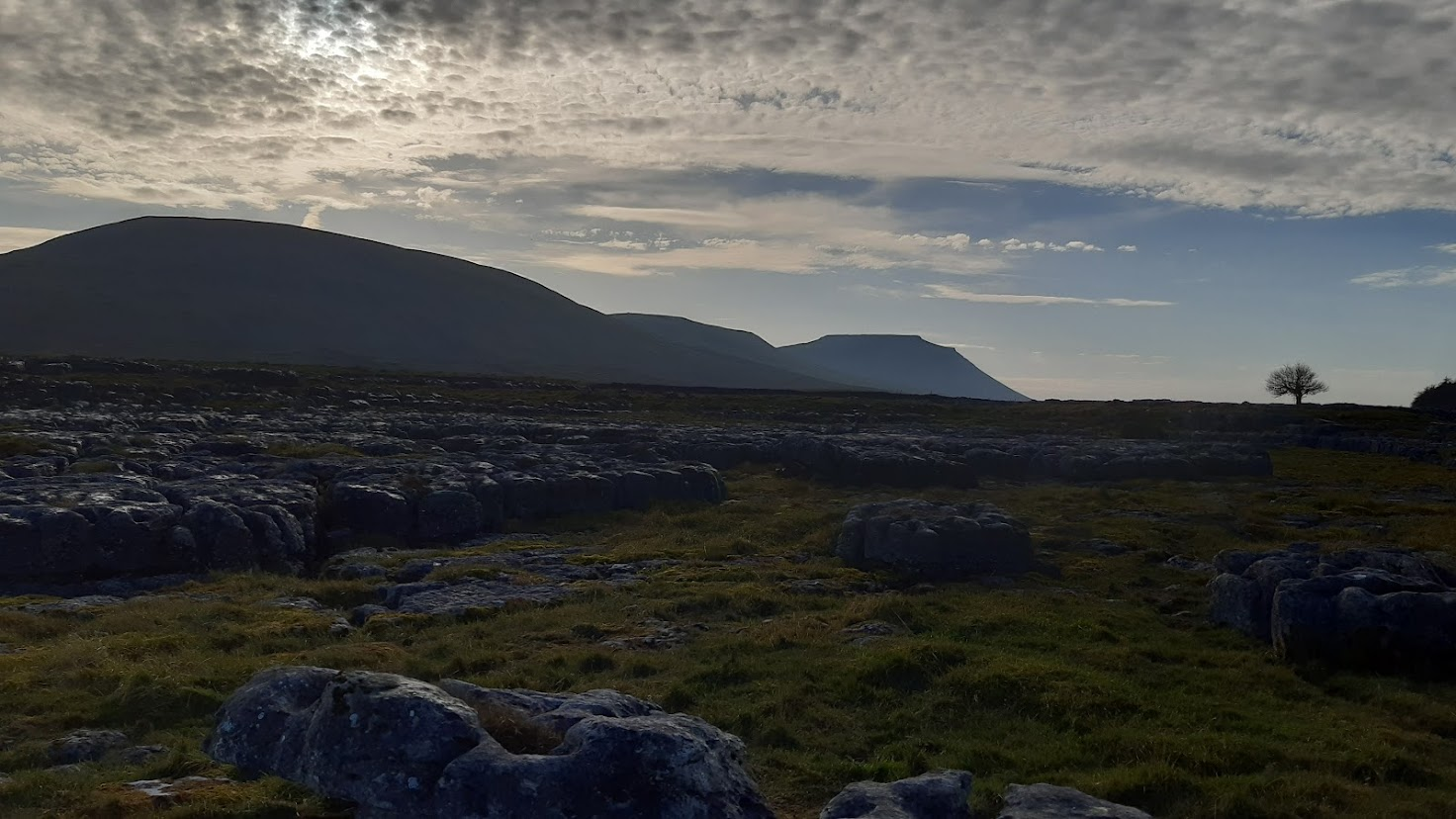

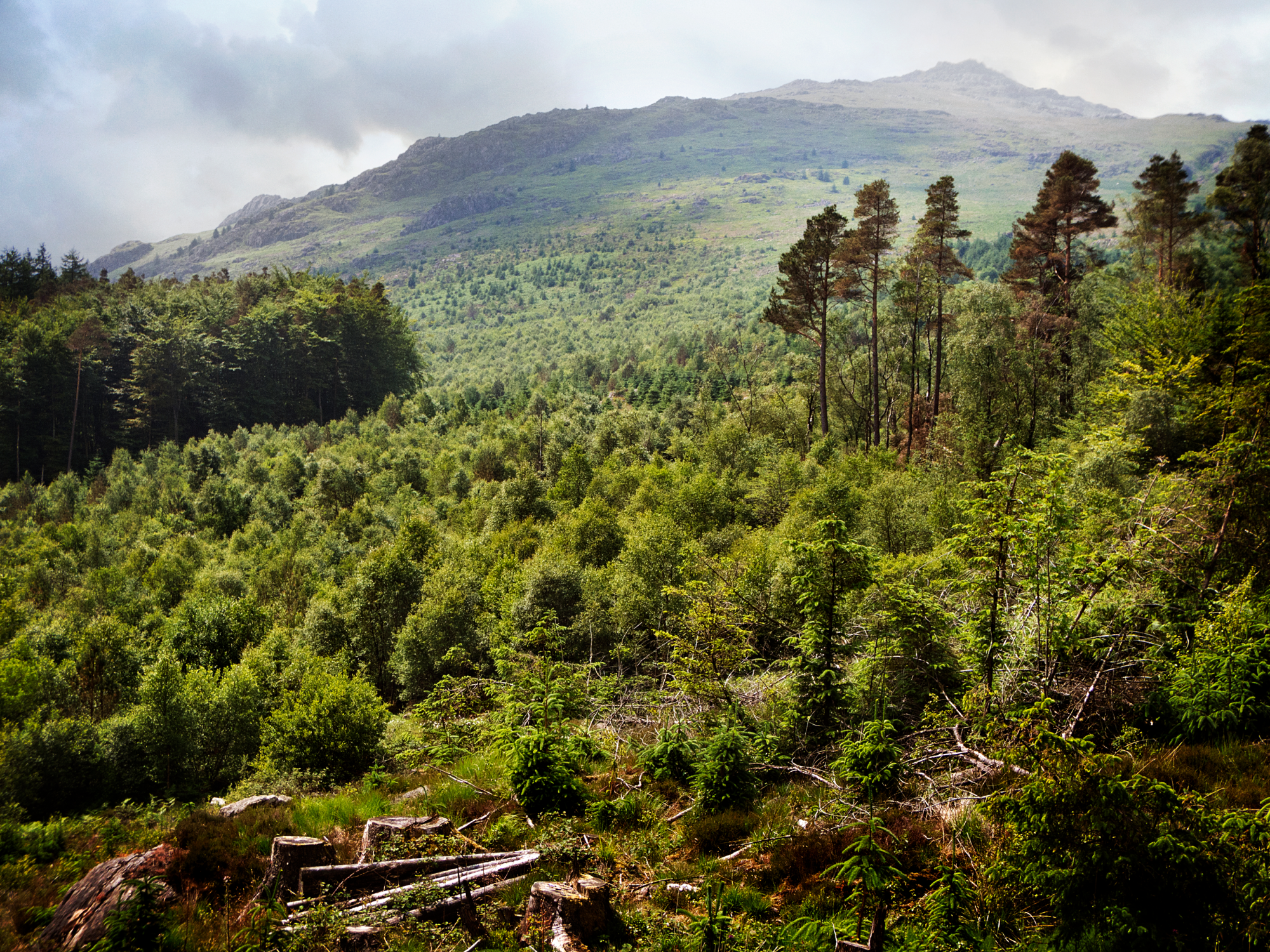
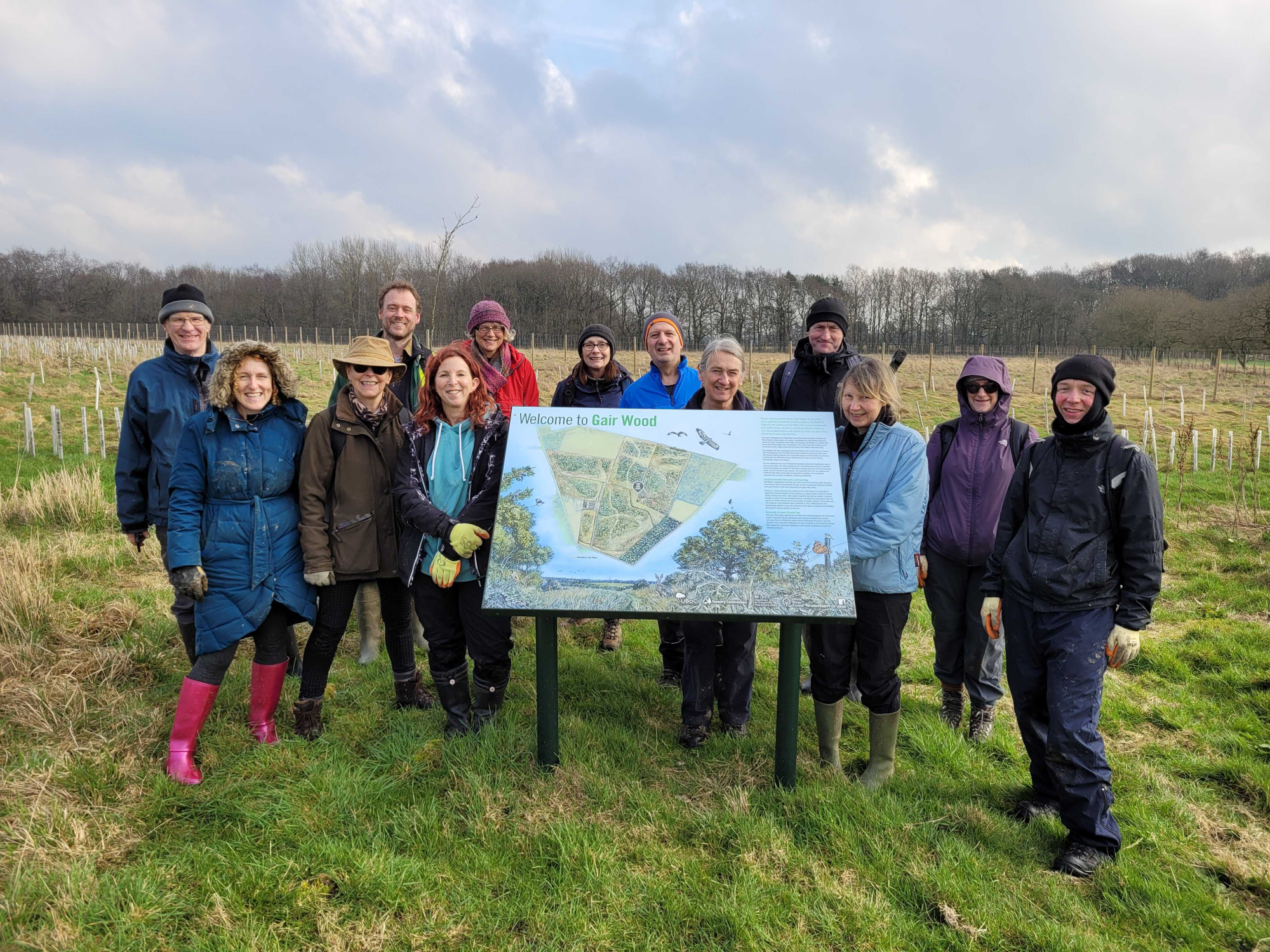
The Alliance
Leeds takes a very applied role with these projects – we translate knowledge into action, and that's really unique.
Led by the University, partners in The Alliance will expand upon these current nature recovery projects across the Western Dales, West Lakes and the Northern Public Forest Estate to create impact at scale. By working together, The Alliance can deliver more nature recovery than any one organisation can do on its own, much faster.
Projects will span across socio-economic and ecological landscapes, both urban and rural, so learnings can be replicated anywhere in the UK.
A dedicated Research to Policy Network will be established, helping to build an evidence base that drives new policies and actions to support native woodland across the UK and Europe.
Leeds research has shown that...
Restoring woodlands can reduce the risk of flooding during extreme storms by over 15%.
Nature-based solutions harness the power of nature to address the future challenges of managing landscapes in a changing climate.
Leeds research has also shown that...
Natural regeneration increases resilience to climate change, and improves carbon storage.
Natural regeneration is the process by which plants and woodlands become established naturally, with their seeds spread by animals or the wind, as opposed to being planted.

The local communities
These projects are transformative – not just for nature, but the local communities, too.
Throughout each project, local volunteers work side by side with project staff, PhD students and academic researchers to help restore biodiversity and study the effects of this change in the landscape.
Across some of the most deprived areas of England the projects provide an opportunity for skill development in practical conservation (from tree planting to dry stone walling) and citizen science (from recording to mapping), and employment opportunities in forestry and land management.
Local schools have chance to engage with projects and learn about conservation, ensuring future generations benefit from and continue to protect the landscapes.
And for volunteers, the true extent of the impact upon wellbeing is only just being realised: “We know spending time outdoors can have massive benefits for mental health and reduce the burden on the NHS," says Professor Dominick Spracklen of the School of Earth and Environment. "So as part of these projects we're creating an evidence base to help understand why that’s the case.
“We want to demonstrate that these projects are transformative – not just for nature, but the local communities, too.”
What's next?
Donor support is needed to scale up and drive nature recovery projects across the UK. Together, we can help return biodiversity to the UK, support local communities, and increase resilience to the impacts of climate change.
There are many opportunities for donors across the entire Alliance for Northern Nature project.
You can make a donation today to help support the groundbreaking partnership.
Unrestricted gifts are especially valuable as they ensure we can continue the planned breadth of activity across all locations – including community outreach, landscape restoration, and work with schools. The combination of these elements will enable the Alliance to have the most significant impact on nature recovery in the UK.
There are also opportunities to support specific elements of the project, as well as volunteer your time. To find out more, or if you have any questions, email Peter Lock p.lock@leeds.ac.uk
With thanks
The University is grateful for the support and collaboration of the United Bank of Carbon (UBoC), White Rose Forest, Natural Environment Research Council, Yorkshire Wildlife Trust, Natural England, World Wide Fund for Nature (WWF), Woodland Trust, National Trust, Garfield Weston Foundation, Northern Monk, Forestry England, University of Cumbria, University of York, South Cumbria Rivers Trust, Leeds Beckett University, Forest Research, Leeds City Council, Department for Environment, Food and Rural Affairs, the Forestry Commission, the European Outdoor Conservation Association, the North Face, the Green Recovery Challenge Fund, Copeland Community Fund, Peter Sowerby Foundation, Duncan and Jaynie Ford and many other individual donors and volunteers.
